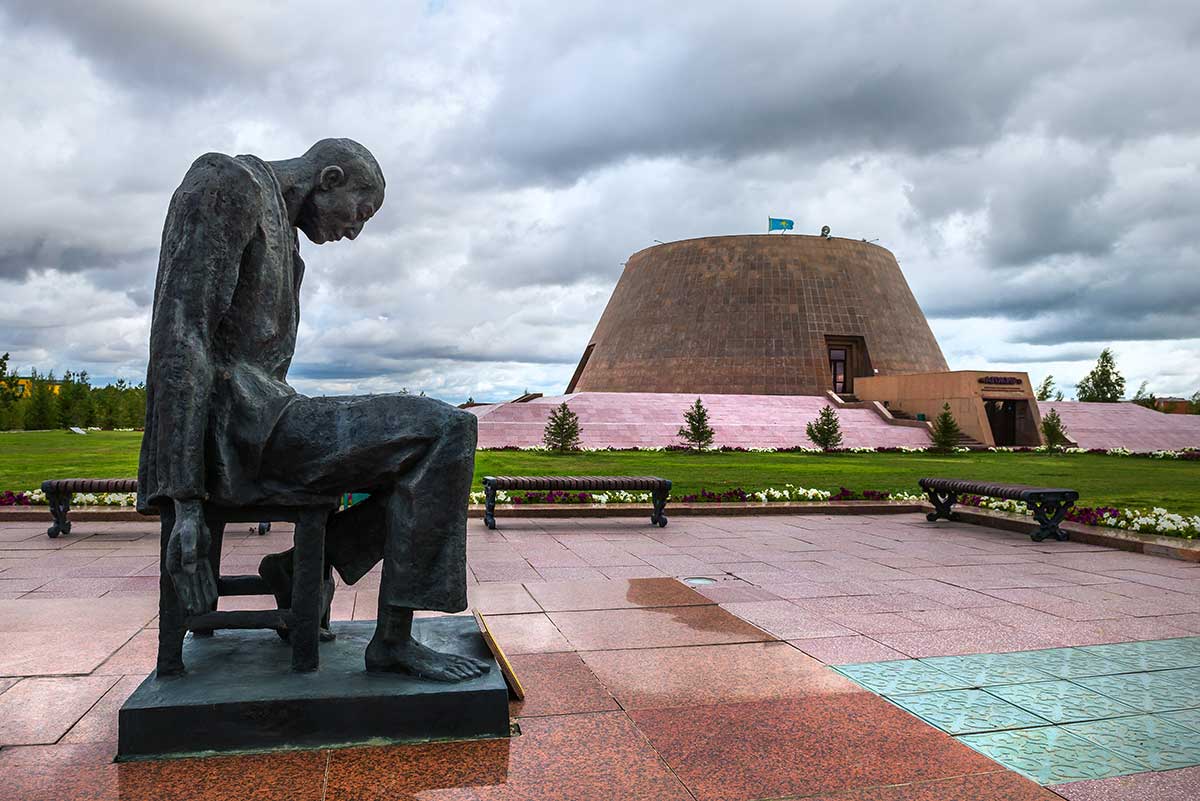
By INS Contributors
KUALA LUMPUR, Malaysia:The political repressions of the first half of the last century distorted the lives of millions of citizens of the former Soviet Union. More than 100,000 people were unjustly convicted in Kazakhstan, and a quarter of them received death sentences.
According to some estimates, more than 40 percent of the Kazakh population died from the famine of 1931–1933 caused by Stalin’s brutal policies of collectivization.
The Stalinist repressions that followed in the 1930s took the lives of thousands of Kazakhs and resulted in the mass death of Kazakh intellectuals - active members of the “Alash Orda” political party founded in 1917.
The leaders of the “Alash” movement advocated first and foremost implementation of steps aimed at decolonization and the achievement of general democratic objectives.
Around the same time the Communist Party’s national policy moved away from the principle of self-determination in the structuring of the state, and the idea of social equality became noticeably dominant over the idea of freedom.
The emerging generation of national elite in the Soviet Union sensed immediately the Damoclean sword of repression hanging above them subjected to political execution and accusations of having “nationalist leanings” or being “pan-Turkic” or “pan-Islamist”.
Thus, the natural but fragile bond between generations was broken. And it was done to draw the nation’s growing generation to the new Communist religion, a religion in which there was no place for national values.
Some of “Alash Orda” members and prominent public figures arrested on false charges: writer and educator Akhmet Baitursynov, publicist, teacher, writer and environmental scientist Alikhan Bokeikhanov, poet and writer Mirzhakyp Dulatov, engineer Mukhametzhan Tynyshbayev, poet Magzhan Zhumabayev, poet and writer Saken Seifullin, poet and writer Ilyas Zhansugirov, writer Beimbet Mailin, military doctor and scientist Sanzhar Asfendiyarov and political figure Turar Ryskulov.
Some of them were shot, others died in the camps. Many of the survivors were later, in 1937, re-accused and executed or exiled to other states of the Soviet Union.
Eleven Soviet forced labor camps were created on Kazakhstan’s territory, where the repressed people and their family members were held in cruel conditions. Among them are ALZHIR (the Akmolinsk Camp of Wives of Traitors to the Motherland) in the Akmola Region and Karaganda labor camp (Karlag) in the Karaganda Region.These sites now serve as historical memorial complexes.
The victims of repressions also were ethnicities living on the Soviet Union’s territory, thus, along with Kazakh people, 1.5 million representatives of other ethnic groups were forcibly deported to Kazakhstan and subjected to persecution. Among them were Chechens, Ingush, Germans, Koreans, Turks, Iranians, Crimean Tatars and Poles.
After Stalin’s death in 1953, the political community reviewed the cases and many repressed people were released from prisons, while those who were shot or died were rehabilitated posthumously. Kazakhstan has been continuing this work since its independence.
May 31 is proclaimed as the Day of Remembrance of Victims of Political Repressions and Famine, the day when the nation remembers one of the darkest pages of its history.
In 2020, to complete the rehabilitation of victims of political repressions, a state commission was established with the important task of restoring historical justice to all innocent victims of Kazakhstan.








0 Comments
LEAVE A REPLY
Your email address will not be published